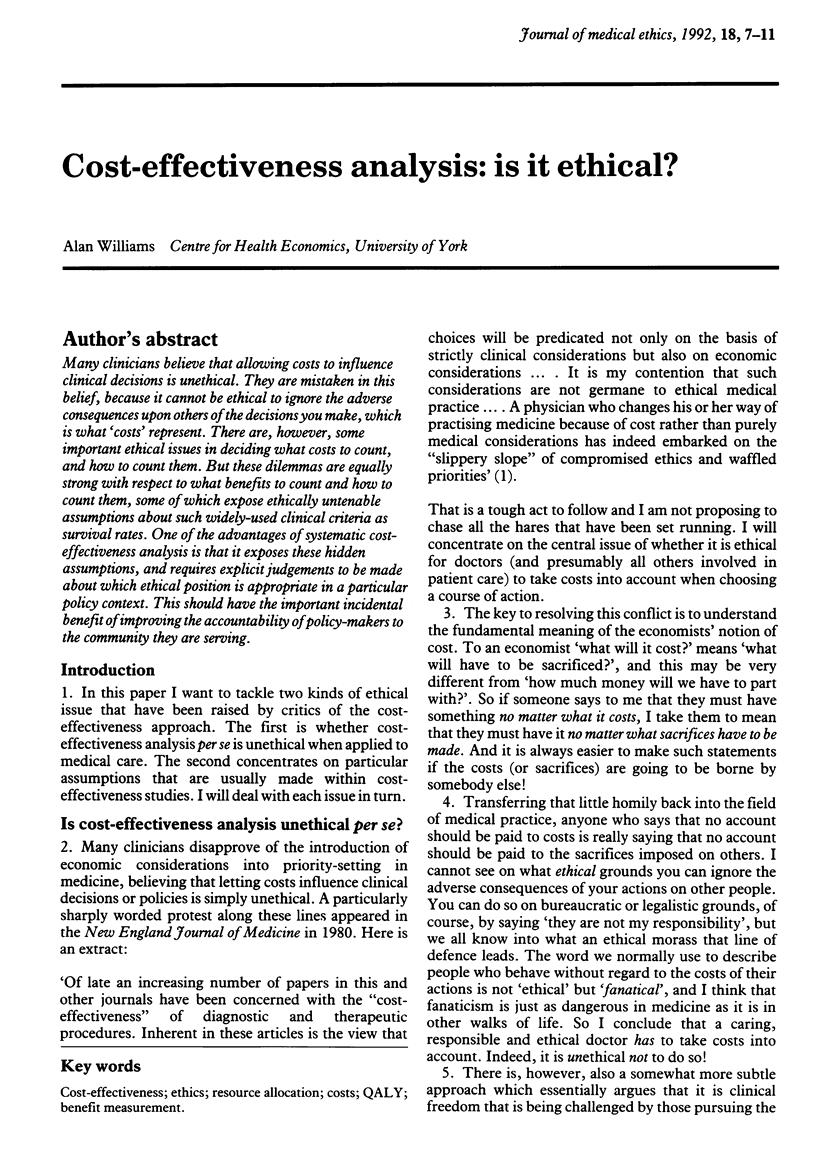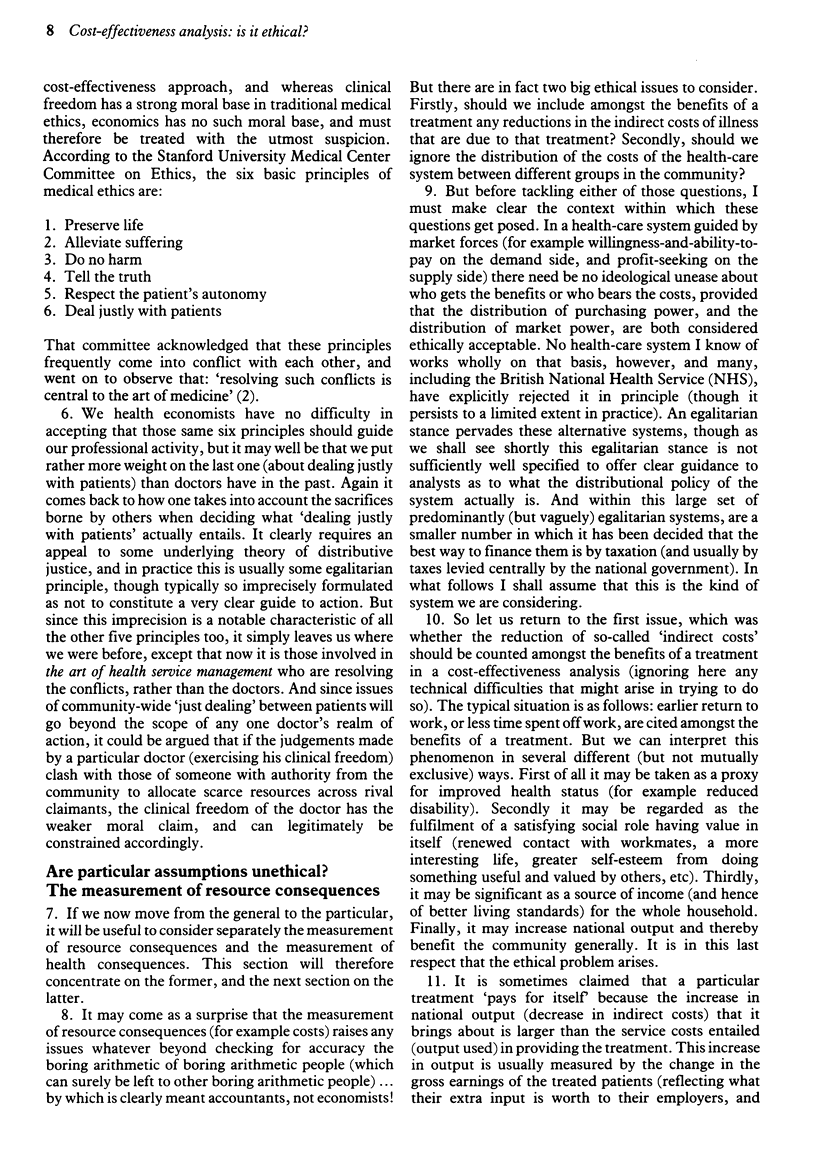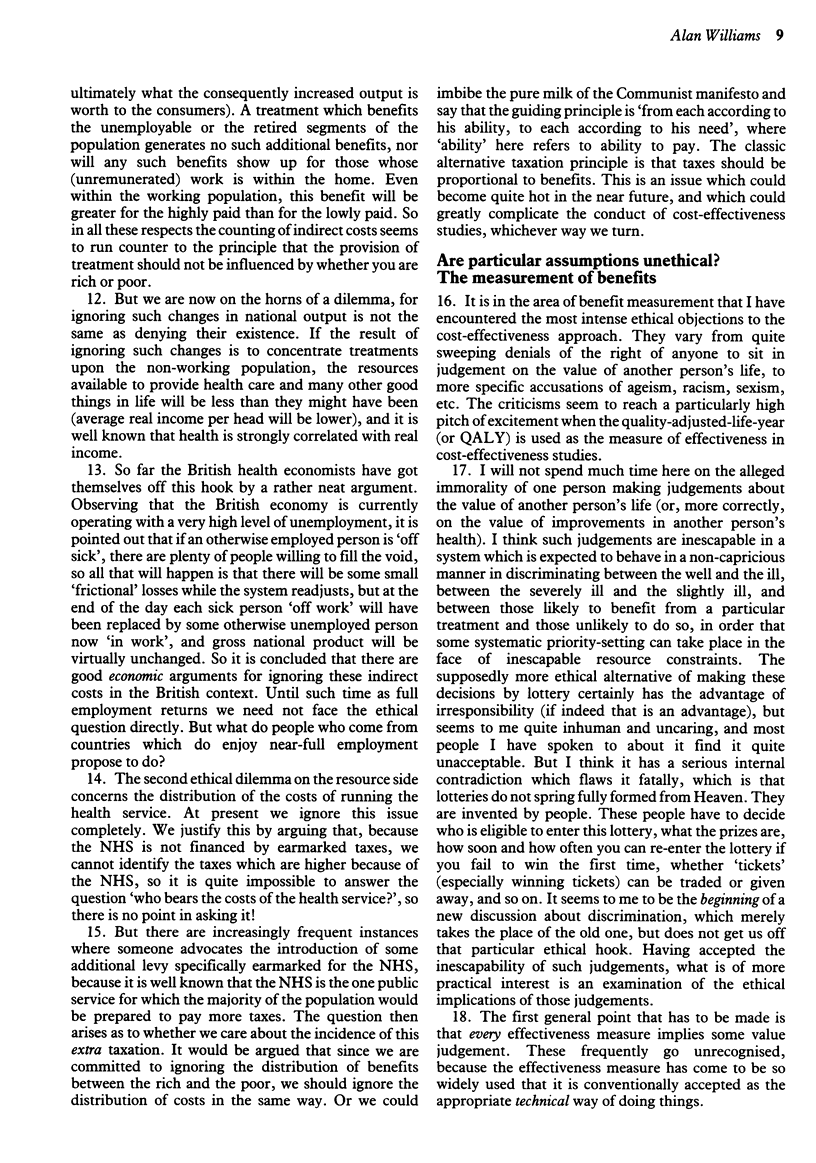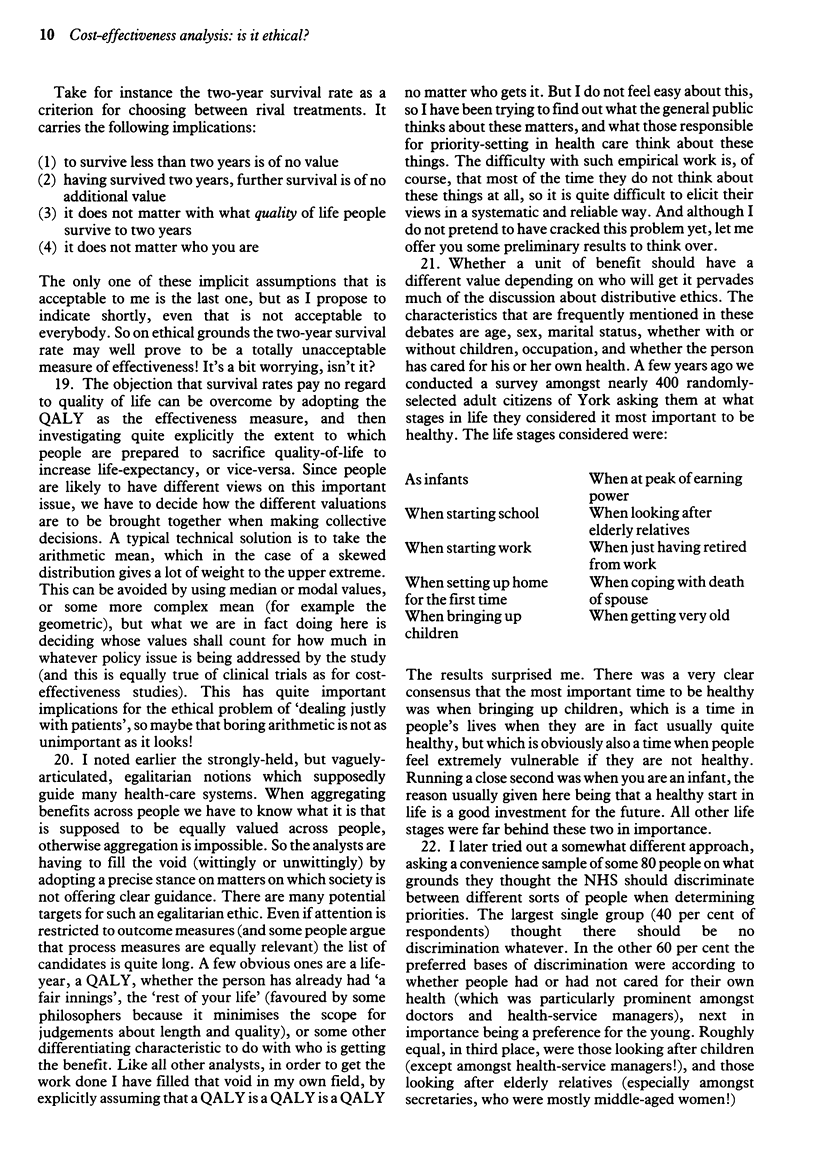Abstract
Many clinicians believe that allowing costs to influence clinical decisions is unethical. They are mistaken in this belief, because it cannot be ethical to ignore the adverse consequences upon others of the decisions you make, which is what 'costs' represent. There are, however, some important ethical issues in deciding what costs to count, and how to count them. But these dilemmas are equally strong with respect to what benefits to count and how to count them, some of which expose ethically untenable assumptions about such widely-used clinical criteria as survival rates. One of the advantages of systematic cost-effectiveness analysis is that it exposes these hidden assumptions, and requires explicit judgements to be made about which ethical position is appropriate in a particular policy context. This should have the important incidental benefit of improving the accountability of policy-makers to the community they are serving.
Full text
PDF




Selected References
These references are in PubMed. This may not be the complete list of references from this article.
- Loewy E. H. Cost should not be a factor in medical care. N Engl J Med. 1980 Mar 20;302(12):697–697. doi: 10.1056/NEJM198003203021226. [DOI] [PubMed] [Google Scholar]


